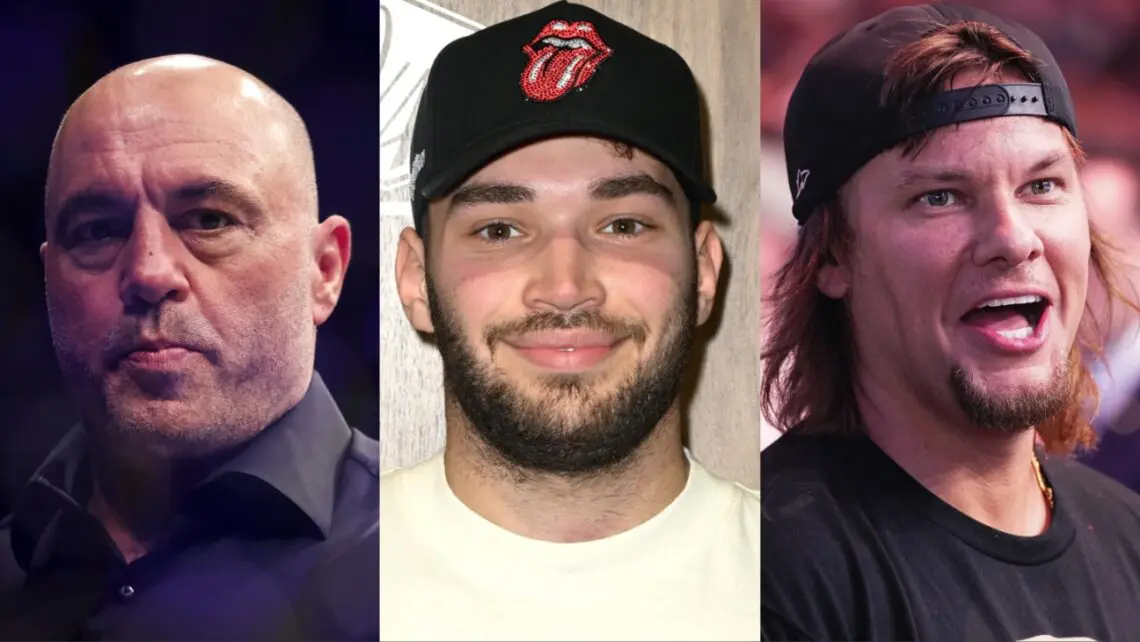Trump Secures Victory in the Age of Influencers
Moments after the 2024 election results declared Donald Trump the winner, UFC CEO Dana White took the stage to extend heartfelt thanks to a unique set of supporters.
The gratitude list
“I want to thank the Nelk Boys, Adin Ross, Theo Von, Bussin’ With The Boys, and last but not least, the mighty and powerful Joe Rogan,” White said.
Though half the country braces for the impact of another Trump term, anxieties surrounding social divisions and democratic norms are palpable. However, one group stands as a clear victor: influencers.
Influencers: The unsung heroes
This network of online content creators was pivotal in Trump’s media strategy, extending his reach like never before. “People have coined this the influencer election, and I think it’s the first of many influencer elections to come,” remarked one Republican National Committee leader.
The media landscape has been rapidly evolving over the last two decades. Legacy media metrics are in freefall: visits to top newspaper websites plummeted by 20% to less than 9 million in late 2022, while general media consumption time wanes. Conversely, the content creator industry is booming, projected to surpass half a trillion dollars by 2027. As more consumers place their trust in creators, the influencer economy thrives.
Shifting media landscapes
Both political parties had to navigate this transformed digital milieu throughout the election. By inviting content creators to rallies and conventions, both camps aimed to foster social media followings.
“This election is where the media landscape has truly shifted,” noted Loren Piretra from Fanfix.
Influencers proved instrumental in generating viral moments for candidates. TikTok sensations Carl Dixon and Steve Terrell’s remixes of quotes reached millions, while accounts like @citiesbydiana popularized trends through memes. Shows hosted by YouTube stars like the Nelk Boys and podcast hosts like Theo Von garnered massive attention.
Divergent strategies: Trump vs. Harris
However, campaign strategies differed significantly. The Harris camp focused on short-form content for TikTok and Instagram, while the Trump team invested in long-form YouTube podcasts and ongoing partnerships with livestreamers. This latter approach proved highly effective.
Trump’s team met influencers on their turf, unlike Harris’s team, which insisted on more controlled settings. This was evident when Harris’s camp requested Joe Rogan to conduct his interview outside of his usual settings, a proposal that fell through.
“Harris approached creators as media channels rather than collaborators,” explained one influencer marketing expert. “Trump immersed himself in the creator culture, meeting them where they were and embracing their mediums.”
The power of parasocial relationships
Trump’s success lay in building parasocial relationships. These connections, fostered through long-form engagements, proved vital for meaningful audience engagement. Platforms like Logan Paul’s Impaulsive and Theo Von’s This Past Weekend provided an avenue for voters to bond parasocially with Trump.
Moreover, Trump went the extra mile to establish personal connections with creators, inviting them onto his private plane and engaging in casual interactions. This not only strengthened Trump’s network but normalized support for Republicans among elite influencers.
A significant shift was noticed in brands’ attitudes towards creators supporting Trump. One influencer remarked, “I used to get dirty looks for wearing a MAGA hat. Now, it’s greeted with respect.”
A transformative victory
Trump’s influencer-packed election night party at Mar-a-Lago signified the campaign’s commitment to the new media environment, reflecting a shift in media power dynamics.
However, this influencer-driven climate isn’t without flaws. Many content creators, primarily entertainers, often ignore traditional journalistic ethics or fail to disclose conflicting partnerships. Moreover, pressure to sensationalize content for algorithmic success remains high.
Federal regulators have yet to adapt effectively to this evolving media landscape. Despite millions of dollars being funneled into social media agencies by political committees, regulatory oversight remains minimal.
Looking ahead
Although the Democrats lost, many liberal creators emerged with larger audiences, a silver lining for their involvement. Democratic strategists and content creators alike experienced significant growth in their platforms, suggesting a potential strategic pivot for future elections.
Experts from both sides agree this election marked a significant moment for independent media. The rise of digital, personality-driven news will likely continue to accelerate under Trump’s presidency, further distancing traditional media.
Political campaigns must adapt to this new environment, chasing podcasters and independent creators to meet evolving audience preferences. As trust in traditional media wanes, the turn towards alternative news sources spans the entire political spectrum.
Follow us on social media for more updates and insights into the ever-changing media landscape and political arena!

 Italian
Italian







